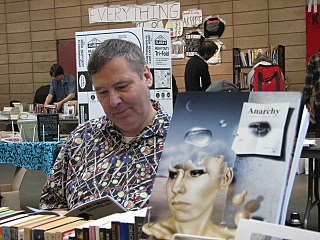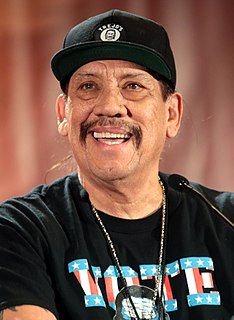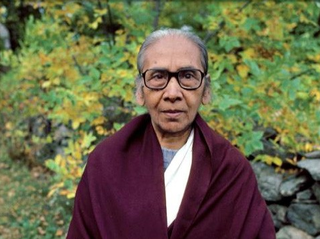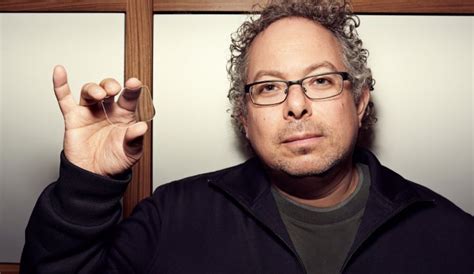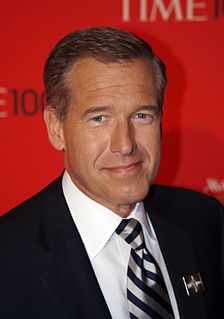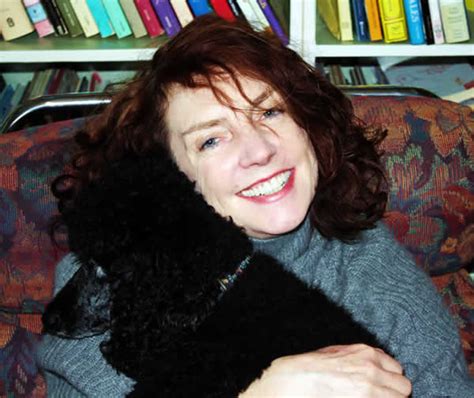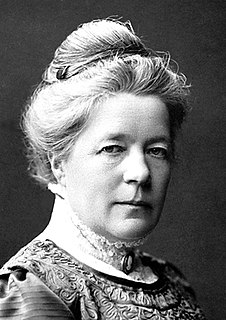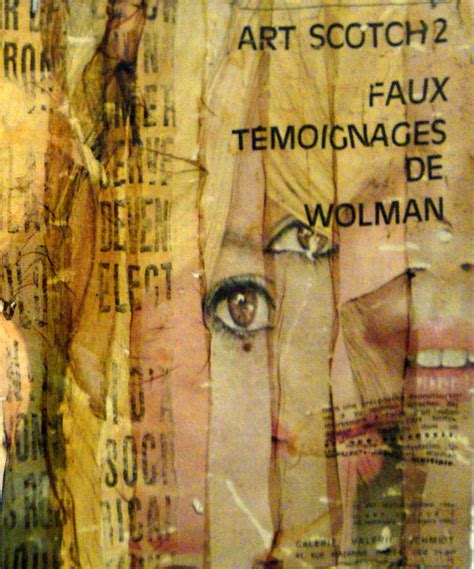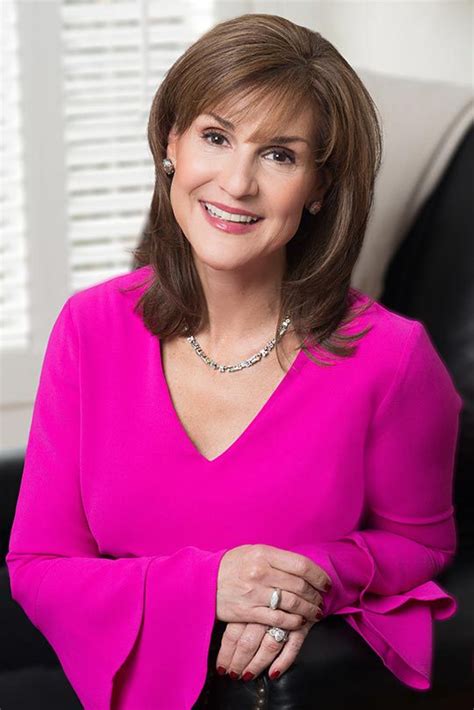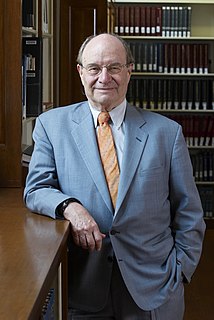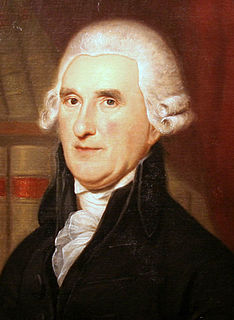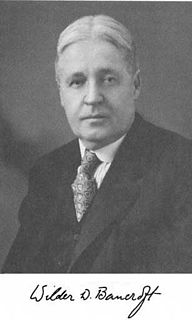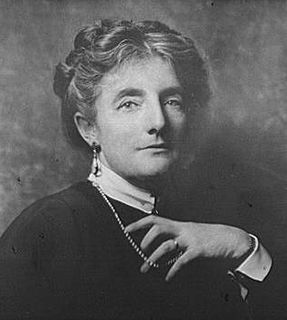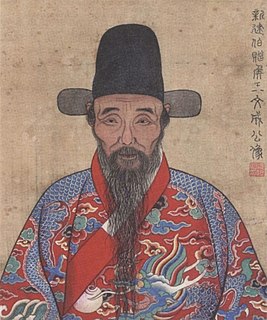Top 716 Distinguish Quotes & Sayings - Page 11
Explore popular Distinguish quotes.
Last updated on December 22, 2024.
[Libertarians] don't denounce what the state does, they just object to who's doing it. This is why the people most victimized by the state display the least interest in libertarianism. Those on the receiving end of coercion don't quibble over their coercers' credentials. If you can't pay or don't want to, you don't much care if your deprivation is called larceny or taxation or restitution or rent. If you like to control your own time, you distinguish employment from enslavement only in degree and duration.
It ought to be the first endeavour of a writer to distinguish nature from custom; or that which is established because it is right, from that which is right only because it is established; that he may neither violate essential principles by a desire of novelty, nor debar himself from the attainment of beauties within his view, by a needless fear of breaking rules which no literary dictator had authority to enact.
There is a mental fear, which provokes others of us to see the images of witches in a neighbor's yard and stampedes us to burn down this house. And there is a creeping fear of doubt, doubt of what we have been taught, of the validity of so many things we had long since taken for granted to be durable and unchanging. It has become more difficult than ever to distinguish black from white, good from evil, right from wrong.
Let me tell you something. When I was young, I was an armed robber. I did robberies. And there's no adrenaline rush like that. When you're using drugs and doing robberies, it's hard to distinguish whether you're doing robberies to support your drug habit, or doing drugs to support your robbery habit.
If our Christianity has ceased to be serious about discipleship, if we have watered down the gospel into emotional uplift which makes no costly demands and which fails to distinguish between natural and Christian existence, then we cannot help regarding the cross as an ordinary everyday calamity, as one of the trials and tribulations of life. We have then forgotten that the cross means rejection and shame as well as suffering .
Man can learn self-discipline without becoming ascetic; he can be wise without waiting to be old; he can be influential without waiting for status. Man can sharpen his ability to distinguish between matters of principle and matters of preference, but only if we have a wise interplay between time and truth, between minutes and morality.
Do not make Mistakes about Character. That is the worst and yet easiest error. Better be cheated in the price than in the quality of goods. In dealing with men, more than with other things, it is necessary to look within. To know men is different from knowing things. It is profound philosophy to sound the depths of feeling and distinguish traits of character. Men must be studied as deeply as books.
Of the Logos which is as I describe it men always prove to be uncomprehending, both before they have heard it and when once they have heard it. For although all things happen according to this Logos, they [men] are like people of no experience, even when they experience such words and deeds as I explain, when I distinguish each thing according to its constitution and declare how it is; but the rest of men fail to notice what they do after they wake up just as they forget what they do when asleep.
It is important to distinguish between sense-pleasure and sense-desire. There is nothing wrong with sense-pleasure. Pleasure and pain are part of our human experience. Sense-desire, on the other hand, is the grasping at pleasure or the avoidance of pain. This is what creates suffering-grasping and avoidance.
I don't really distinguish between a fictional hero and a real life hero as a basis for any comparison. To me, a hero is a hero. I like making pictures about people who have a personal mission in life or at least in the life of a story who start out with certain low expectations and then over achieve our highest expectations for them. That's the kind of character arc I love dabbling in as a director, as a filmmaker.
In the inheritance, I seek to dramatically distinguish between genuine, authentic Christianity on the one hand, and counterfeit, alternative spirituality on the other hand. One of my primary purposes is to demonstrate that there are two kingdoms operating in the earth today, the genuine, superior kingdom of Jesus Christ, which reigns supreme, and the counterfeit, occult kingdom of the enemy, which, through extreme subtlety, has led millions of deluded souls astray.
It is odd to think that there is a word for something which, strictly speaking, does not exist, namely, "rest." We distinguish between living and dead matter; between moving bodies and bodies at rest. This is a primitive point of view. What seems dead, a stone or the proverbial "door-nail," say, is actually forever in motion. We have merely become accustomed to judge by outward appearances; by the deceptive impressions we get through our senses.
As an architect it is very important that you distinguish between different realities. There's the reality of the drawing and the reality of the building. So one could say, or at least it is the common belief that architecture has to be built; I always denied that, because ultimately it is based on an idea. I don't ever need a building to verify my idea. Of course, what with a building is more its vanity and actual physical experience. But I anticipate; I wouldn't even build it if I could not anticipate how it would be.
Watching my father plan and strategize for the resistance has taught me about trust.” She leaned forward. “Personal trust is very different from political trust, my lady. The first thrives on faith. The second requires proof, whether it be upfront or covert.” Awkwardly, she patted my hand. “His Majesty has always been a powerful man. Perhaps he has never had to distinguish between the two.
The everyday world, as Kant proved, is mere appearance. But it is also the only world in which we can make sense of the idea of a plurality of distinct individuals. We can only distinguish things as different if they occupy different regions of space-time. It follows (a point Kant missed but which the mystics have always understood) that reality 'in itself' is 'beyond plurality' and is, in that sense, 'One'.
Love is the ability to live your life with an empowered heart without attachment to the outcome, the ability within yourself to distinguish within yourself between love and fear and choose love regardless of what is going on inside yourself or outside. This is self-mastery or authentic power...that means you become clear, forgiving, humble and loving... you are grounded in harmony, cooperating, sharing and reverence for life.
The [Stanford Prison Experiment] was readily approved by the Human Subjects Research committee because it seemed like college kids playing cops and robbers, it was an experiment that anyone could quit at any time and minimal safeguards were in place. You must distinguish hind sight from fore sight, knowing what you know now after the study is quite different from what most people imagined might happen before the study began.
Big dreams are risky business. The psyche can be fiendish, puckish, exalted, imperious, tender, sardonic, faithful, pestilential--whatever rivets our attention upon the task of psychic growth. It is not so hard to find at least a little sympathy for theologian Martin Luther, who prayed to God not to send him any dreams at all, fearful he could not distinguish between those of divine origin and those sent by the Devil.
We, however, have a different goal: the Son of God, the true man. He is the measure of true humanism. An "adult" faith is not a faith that follows the trends of fashion and the latest novelty; a mature, adult faith is deeply rooted in friendship with Christ. It is this friendship that opens us up to all that is good and gives us a criterion by which to distinguish the true from the false, and deceit from truth.
This is our one and only chance at mortal life-here and now. The longer we live, the greater is our realization that it is brief. Opportunities come, and then they are gone. I believe that among the greatest lessons we are to learn in this short sojourn upon the earth are lessons that help us distinguish between what is important and what is not. I plead with you not to let those most important things pass you by. As you plan for that illusive, nonexistent future when you will have time to do all that you want to do. Instead, find you in the journey now.
We must distinguish between those who depend on others, that is between those who to achieve their purposes can force the issue and those who must use persuasion. In the second case, they always come to grief, having achieved nothing; when, however, they depend on their own resources and can force the issue, then they are seldom endangered.
The handkerchief dabbed at my forehead. 'Ouch! You'll have a fine-looking bruise tomorrow.' 'Then you'll be able to distinguish me from Rose.' The handkerchief paused. 'I could tell you apart from the beginning. You're quite different to each other, you know.' Perhaps he could tell, in the obvious ways. The odd one was Rose; the other odd one was Briony.
Enthusiasm needs to be effective enthusiasm. We must distinguish between the contribution and enthusiasm of the cheerleader and the enthusiasm of the player. While cheerleaders serve an important purpose, the real contest involves players on the field or on the court of life. We must not go through life acting only as enthusiastic cheerleaders available for hire; we must be anxiously and personally engaged.
If dead things love, if earth and water distinguish friends from enemies, I should like to possess their love. I should like the green earth not to feel my step as a heavy burden. I should like her to forgive that she for my sake is wounded by plough and harrow, and willingly to open for my dead body.
Whatever prestige the bourgeoisie may today be willing to grant to fragmentary or deliberately retrograde artistic tentatives, creation can now be nothing less than a synthesis aiming at the construction of entire atmospheres and styles of life. . . . A unitary urbanism — the synthesis we call for, incorporating arts and technologies — must be created in accordance with new values of life, values which we now need to distinguish and disseminate. . . .
Because every book of art, be it a poem or a cupola, is understandably a self-portrait of its author, we won't strain ourselves too hard trying to distinguish between the author's persona and the poem's lyrical hero. As a rule, such distinctions are quite meaningless, if only because a lyrical hero is invariably an author's self-projection.
Mama?" "Yes, Emmy." She traced a rivulet of rain with her finger as it made its journey down the glass. "How do you know when it's been long enough?" Emmy could sense her mother smiling into the phone. "When you relaize that love doesn't have a time span. Only pain does. I think sometimes it's hard to distinguish between the two, so we just hold on to both of them like they're inseparable.
It is justly considered as the greatest excellency of art to imitate nature; but it is necessary to distinguish those parts of nature which are most proper for imitation: greater care is still required in representing life, which is so often discoloured by passion or deformed by wickedness. If the world be promiscuously described, I cannot see of what use it can be to read the account; or why it may not be as safe to turn the eye immediately upon mankind, as upon a mirror which shows all that presents itself without discrimination.
I intend to discuss some perplexing issues which are raised once we embrace the hypothesis that society can be deschooled; to search for criteria which may help us distinguish institutions which merit development because they support learning in a deschooled milieu; and to clarify those personal goals which would foster the advent of an Age of Leisure (schole) as opposed to an economy dominated by service industries.
I could also distinguish the glint of a special puddle (the one Krug had somehow perceived through the layer of his own life), an oblong puddle invariably acquiring the same form after every shower because of the constant spatulate shape of a depression in the ground. Possibly something of the kind may be said to occur in regard to the imprint we leave in the intimate texture of space. Twang. A good night for nothing.
I would say that deconstruction is affirmation rather than questioning, in a sense which is not positive: I would distinguish between the positive, or positions, and affirmations. I think that deconstruction is affirmative rather than questioning: this affirmation goes through some radical questioning, but it is not questioning in the field of analysis.
When you see runners in town is easy to distinguish beginners from veterans. The ones panting are beginners; the ones with quiet, measured breathing are the veterans. Their hearts, lost in thought, slowly tick away time. When we pass each other on the road, we listen to the rhythm of each other's breathing, and sense the way the other person is ticking away the moments.
[T]aking the Third into account does not bring us into the position of pragmatic consideration, of comparing different Others; the task is rather to learn to distinguish between false conflicts and the true conflict. For example, today's conflict between Western liberalism and religious fundamentalism is a false one, since it is based on the exclusion of the third term which is its truth: the Leftist emancipatory position.
I am afraid that those comments go back to the late 80's. At that time I was a skeptic - the argument based on Koch's postulates to try to distinguish between cause and association. Today I would regard the success of the many antiviral agents which lower the virus titers (to be expected) and also resolve the failure of the immune system (only expected if the virus is the cause of the failure) as a reasonable proof of the causation argument .
The true liberty of the press is amply secured by permitting every man to publish his opinion; but it is due to the peace and dignity of society, to inquire into the motives of such publications, and to distinguish between those which are meant for use and reformation, and with an eye solely to the public good, and those which are intended merely to delude and defame. To the latter description, it is impossible that any good government should afford protection and impunity.
Many people who call themselves deflationists are deflationists about propositional truth but not about sentential truth. I only ever mention that view to distinguish it from disquotationalism. I don't really have any objection to it, other than that I don't believe in propositions, so I don't think there's any such thing as a proposition's being true. Truth, on my view, is primarily a property of representations, such as sentences and certain kinds of mental states.
A disciple came to the celebrated Master of the Good Name with a question. “Rabbi, how are we to distinguish between a true master and a fake?” And the master of the good name said, “When you meet a person who poses as a master, ask him a question: whether he knows how to purify your thoughts. If he says that he knows, then he is a fake.
We can distinguish three groups of scientific men. In the first and very small group we have the men who discover fundamental relations. Among these are van't Hoff, Arrhenius and Nernst. In the second group we have the men who do not make the great discovery but who see the importance and bearing of it, and who preach the gospel to the heathen. Ostwald stands absolutely at the head of this group. The last group contains the rest of us, the men who have to have things explained to us.
When you open a book,” the sentimental library posters said, “anything can happen.” This was so. A book of fiction was a bomb. It was a land mine you wanted to go off. You wanted it to blow your whole day. Unfortunately, hundreds of thousands of books were duds. They had been rusting out of everyone’s way for so long that they no longer worked. There was no way to distinguish the duds from the live mines except to throw yourself at them headlong, one by one.
There is a regulation of behavior on the Internet and in cyberspace, but that regulation is imposed primarily through code. The differences in the regulations effected through code distinguish different parts of the Internet and cyberspace. In some places, life is fairly free; in other places, it is more controlled. And the difference between these spaces is simply a difference in the architectures of control--that is, a difference in code.
The New Age movement looks like a mixed bag. I see much in it that seems good: It's optimistic; it's enthusiastic; it has the capacity for belief. On the debit side, I think one needs to distinguish between belief and credulity. How deep does New Age go? Has it come to terms with radical evil? More, I am not sure how much social conscience there is in New Age thinking.
Rousseau had it backwards. We are NOT born free. We are born in the chains of the random and the reflexive, and are ignorant and unreasonable by simple nature. We must learn to be free, to organize the random and detect the reflexive, to acquire the knowledge of particulars and the powers of reason. The examined life is impossible if we cannot examine, order, classify, define, distinguish, always in minute particulars.
What is called for is an exquisite balance between two conflicting needs: the most skeptical scrutiny of all hypotheses that are served up to us and at the same time a great openness to new ideas. If you are only skeptical, then no new ideas make it through to you. On the other hand, if you are open to the point of gullibility and have not an ounce of skeptical sense in you, then you cannot distinguish useful ideas from the worthless ones.
Most codes extend their definitions of treason to acts not really against one's country. They do not distinguish between acts against the government, and acts against the oppressions of the government. The latter are virtues, yet have furnished more victims to the executioner than the former. Real treasons are rare; oppressions frequent. The unsuccessful strugglers against tyranny have been the chief martyrs of treason laws in all countries.
The capacity to see the big picture is perhaps the most important as an antidote to the variety of psychic woes brought forth by the remarkable prosperity and plentitude of our times. Many of us are crunched for time, deluged by information, and paralyzed by the weight of too many choices. The best prescription for these modern maladies may be to approach one's own life in a contextual, big picture fashion - to distinguish between what really matters and what merely annoys.
To eat in a monastery refectory is an exercise in humility; daily, one is reminded to put communal necessity before individual preference. While consumer culture speaks only to preferences, treating even whims as needs to be granted (and the sooner the better), monastics sense that this pandering to delusions of self-importance weakens the true self, and diminishes our ability to distinguish desires from needs. It's a price they're not willing to pay.
Take nothing for granted as beautiful or ugly, but take every building to pieces, and challenge every feature. Learn to distinguish the curious from the beautiful. Get the habit of analysis - analysis will in time enable synthesis to become your habit of mind. 'Think simples' as my old master used to say - meaning to reduce the whole of its parts into the simplest terms, getting back to first principles.
The soul is the perceiver and revealer of truth. We know truth when we see it, let skeptic and scoffer say what they choose ... We distinguish the announcements of the soul, its manifestations of its own nature, by the term Revelation. These are always attended by the emotion of the sublime. For this communication is an influx of the Divine mind into our mind. It is an ebb of the individual rivulet before the flowing surges of the sea of life. Every distinct apprehension of this central commandment agitates men with awe and delight.
People today distinguish between knowledge and action and pursue them separately, believing that one must know before he can act... . They say [they will wait] till they truly know before putting their knowledge into practice. Consequently to the end of their lives, they will never act and also will never know.
It would much conduce to the public benefit, if, instead of discouraging free-thinking, there was erected in the midst of this free country a dianoetic academy, or seminary for free-thinkers, provided with retired chambers, and galleries, and shady walks and groves, where, after seven years spent in silence and meditation, a man might commence a genuine free-thinker, and from that time forward, have license to think what he pleased, and a badge to distinguish him from counterfeits.
The man of genius is he whose ego has acquired consciousness. He is enabled by it to distinguish the fact that others are different, to perceive the "ego" of other men, even when it is not pronounced enough for them to be conscious of it themselves. But it is only he who feels that every other man is also an ego, a monad, an individual centre of the universe, with specific manner of feeling and thinking and a distinct past, he alone is in a position to avoid making use of his neighbours as means to an end.
We wander through this life together in a semi-darkness in which none of us can distinguish exactly the features of his neighbour. Only from time to time, through some experience that we have of our companion, or through some remark that he passes, he stands for a moment close to us, as though illuminated by a flash of lightning. Then we see him as he really is.
What is so striking in the book of Jeremiah is how many times it is impossible to distinguish between the words of Jeremiah and the words of God, when deep feelings are being expressed. That is probably intentional. The prophet not only speaks what God says, he also feels what God feels. The tears of the prophet are the tears of God.
I do believe in simplicity. It is astonishing as well as sad, how many trivial affairs even the wisest thinks he must attend to in a day; how singular an affair he thinks he must omit. When the mathematician would solve a difficult problem, he first frees the equation of all incumbrances, and reduces it to its simplest terms. So simplify the problem of life, distinguish the necessary and the real. Probe the earth to see where your main roots run.
A human moment is a term I invented to distinguish in-person communication from electronic. Human moments are exponentially more powerful than electronic ones. I mean face-to-face, in-person contact and communication. I have identified several modern paradoxes and the first is that, for various reasons, we have grown electronically superconnected but we have simultaneously grown emotionally disconnected from each other.
What is it about a work of art, even when it is bought and sold in the market, that makes us distinguish it from . . . pure commodities? A work of art is a gift, not a commodity. . . works of art exist simultaneously in two “economies”, a market economy and a gift economy. Only one of these is essential, however: a work of art can survive without the market, but where there is no gift, there is no art.
